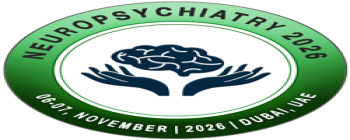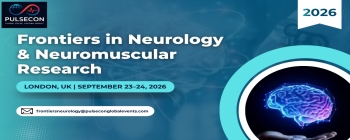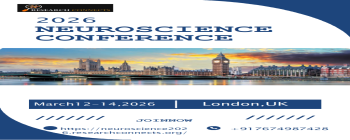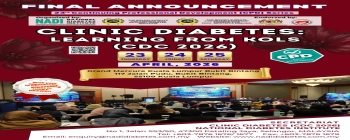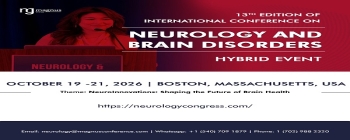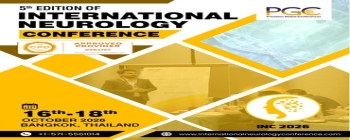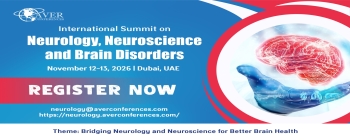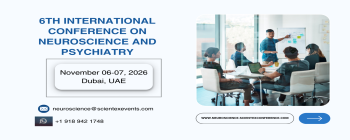
2nd Global Experts Meeting on Frontiers in Alzheimer’s Disease & Dementia Barcelona Spain
We are glad to announce that “2nd Global Experts Meeting on Frontiers in Alzheimer’s Disease & Dementia” conference is going to be held on June 08-10 | 2020, Barcelona, Spain. Organized by Frontiers Meetings Ltd in collaboration with generous support and cooperation from enthusiastic academicians and Editorial Board Members. This conference is a unique international platform that’s a confluence of all stakeholders of the ecosystem – Industry, Academia, Researchers, Innovators, Regulators – coming together to present and discuss wide range of current topics and will be available to discuss on the Theme: “Advancements and Breakthroughs in the Fields of Dementia & Alzheimer’s Research”. As the premier event, we have developed a program with your interests in mind. We have not only increased the number of opportunities for you to network with colleagues from across the world but also introduced more focused sessions that will feature cutting edge presentations, special panel discussions, and livelier interaction with industry leaders and experts. Life is full of give and take. Make it count in your professional life. Attend the Dementia 2020 Conference to network with your peers, exchange expertise and experiences, and arm yourself with the latest information to take your department to the next level.
Research Topics:
- Mental health & Psychiatry
- Dementia
- Care Practice and Awareness
- Childhood Trauma and Dementia
- Alzheimer’s Disease Imaging
- Causes and Prevention of Alzheimer’s
- Alzheimer’s Disease Diagnosis and Symptoms
- Alzheimer’s Disease Pathophysiology and Disease Mechanisms
- Neurodegenerative Diseases
- Vascular Dementia
- Dementia Nursing
- Dementia Care and Consulting
- Alzheimer’s Clinical Trials and Studies
- Brain Diseases
- Parkinson’s Disease
- Molecular Genetics and Biology of Dementia
- Medical Biotechnology and Alzheimer’s disease
- Therapeutic Targets and mechanisms for Treatment
- Animal Models and Translational Medicine
Recent Studies and Case Reports
Target Audience:
Neurologists
Psychiatry Specialist
Physicians with expertise in all the fields of Neurology and Neuroscience
Subspecialty fellows
Business Entrepreneurs
Hospitals and Clinics
Government and Independent Regulatory Authorities
Research Laboratories
Research and Development (R&D) Companies
Market Research and Consulting Service Providers
Medical Research Laboratories
Potential Investors
GUIDELINES
ABSTRACT STRUCTURE
Abstracts should be no longer than one A4 page in portrait layout.
· The title of the abstract should be as concise as possible and should appear in bold, sentence cased and centred.
· Co-authors and affiliations below the title should be in Italics (the main author's name should be underlined, and the name of the presenting author should be marked with an asterisk (*).
· The abstract must be written in the most preferable language, i.e. English and content should have a maximum character of 300 words.
· The main body of the abstract should be in Times New Roman, Font size 12, Justified, Line spacing 1.5.
· References, denoted by superscript numbers in the text should be listed at the end of the text using standard Chemical Abstracts Source Service Index terminology followed by YEAR, VOLUME and PAGE.
· The use of figures, graphs, and schemes are recommended where this aids the understanding of the text.
· Abstracts should be submitted as in MS Word or PDF format, either via email attachment to conference email with the subject line 'conference name abstract' or online submission method via the conference website.
· Please include the full details of the main author and the presenting author in the email and indicate whether you are submitting an Oral or a Poster Presentation.
· Note: There is a 1 MB limit for online abstract submission, if your abstract is larger than 1 MB, then you are recommended to send it via email as an attachment.
· After completion of the conference, speakers could submit their full-length papers to any of our related journals and it will be published within 2 months of the time period with additional charges.
· A confirmation mail will be sent in regards to receiving your abstract, and if the submitter does not receive any mail within next 24 Hrs, he/she is suggested to the contact the respective conference coordinator, manager or ambassador.
We firmly believe that ethical conduct is the most essential virtual of any academic, hence any act of plagiarism is totally unaccepted and academic misconduct will not be tolerated.
THE CONFERENCE OFFERS TWO OPTIONS FOR ABSTRACT SUBMISSION
OPTION-1
Suited for research conducted in all the disciplines. Check a sample abstract for this option here. Abstracts submitted under the first option should contain concise statements of:
· Backgrounds: Indicate the purpose and objective of the research, the hypothesis that was tested or a description of the problem being analyzed or evaluated.
· Methods: Describe (the study period/ setting/location, study design, study population, data collection and methods of analysis used.
· Results: Present as clearly and in as much detail as possible the findings/outcome of the study. Please summarize any specific results.
· Conclusions: Explain the significance of your findings/outcomes of the study of HIV prevention, treatment, care and/or support, and Future Implications of the results.
The following review criteria will be used in scrolling abstracts submitted under OPTION 1:
· Is there a clear background and justified objective?
· Is the methodology/study design appropriate for the objectives?
· Are the results important and clearly presented?
· Are the conclusions supported by the results?
· Is the study original, and does it contribute to the field?
OPTION-2
Suited for research conducted in all disciplines. Check a sample abstract for this option here. Abstracts submitted under the first option should contain concise statements of:
· Backgrounds: Summarize the purpose, scope, and objectives, of the programme, project or policy.
· Methods: Describe the programme, project or policy period/ setting/location, the structure, key population (if applicable), activities and interventions were undertaken in support of the programme, project or policy.
· Lessons Learned: Present as clearly and in as much detail as possible the methods/findings/ outcomes of the programme, project or policy; include analytic approaches, evaluation of lessons learned and best practices with a succinct description of the methods used, in addition, please summarize any specific results that specifically support your conclusions of lessons learned and best practices.
· Conclusions: Explain the significance of the methods used and findings/outcomes of the programme, project or policy for HIV prevention, treatment, care and /or support, and future implications of the results.
PEER-REVIEW PROCESS:
All submitted abstracts will go through a peer-review process carried out by a peer review committee. After the successful review of your abstract, we will guide you further steps towards your presence at our event.
